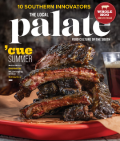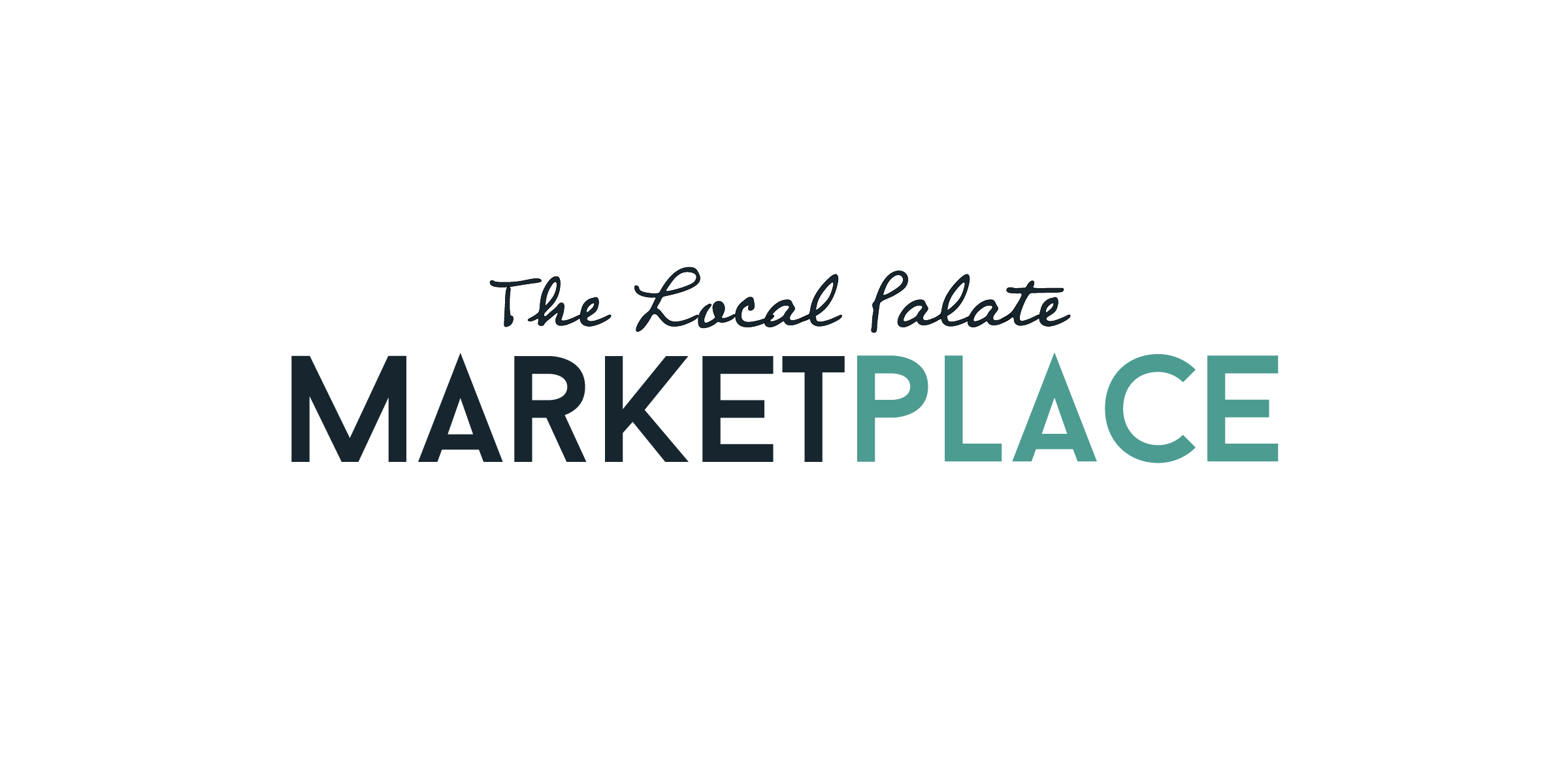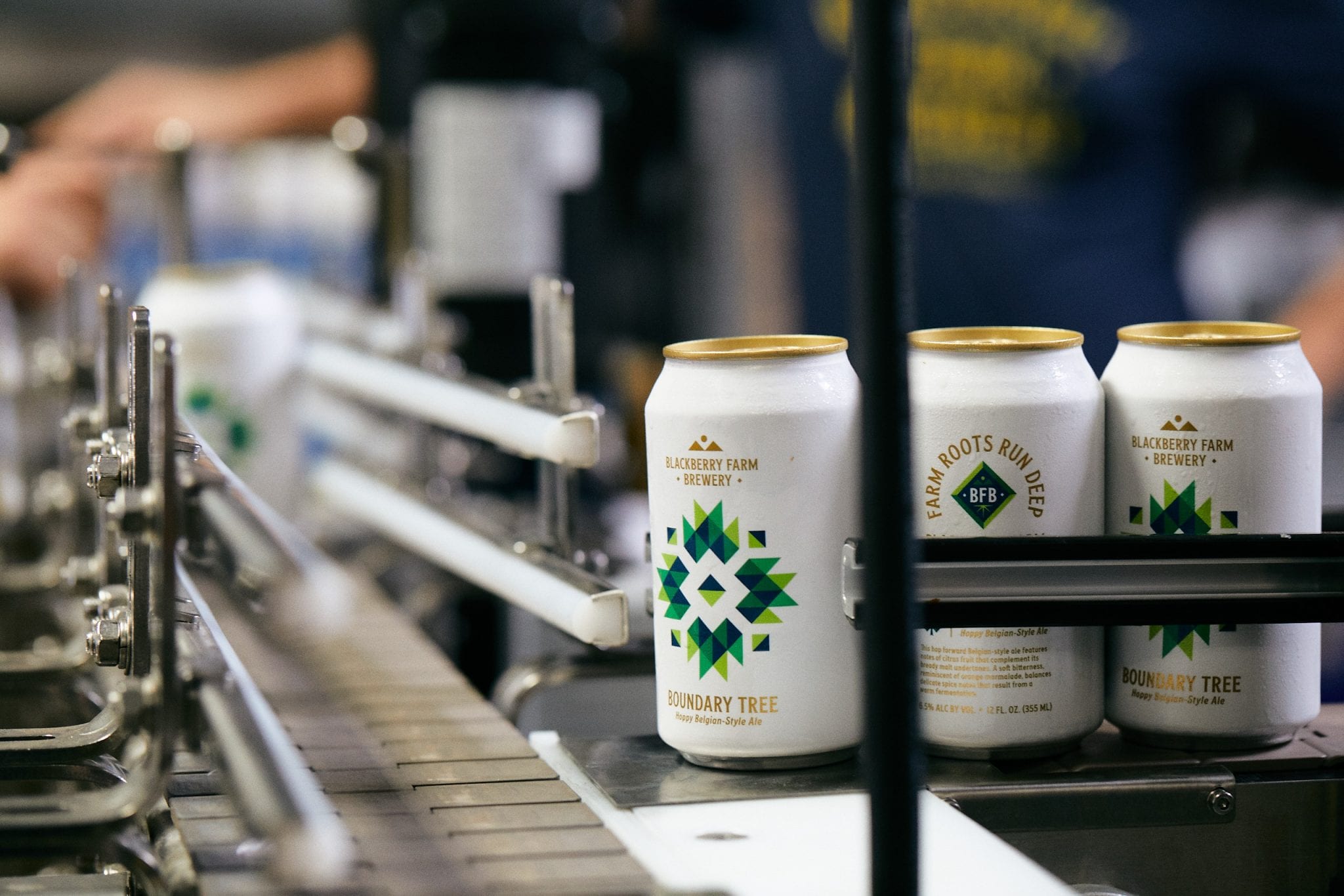As the hospitality industry comes to grips with how to invite guests back in their doors as they slowly creak open, it’s important to remember that not every aspect of hospitality has been affected in the same way. Some restaurants have pretty successfully pivoted to delivery and carryout models or have been fortunate to have enough outdoor patio space to seat close to their normal capacity even when regulations demand social distancing. Bars are waiting with bated breath to welcome their patrons back inside. Hotels and airlines are seeing a definite uptick in travelers as more doors are opened. Cruise ships? Well, ugh. That’ll probably be a while…
However, no segment of the hospitality industry has faced such different sets of challenges, and to varying degrees of success, as the beverage arms of the business. Some big brand spirits have actually seen an uptick in their revenues as consumers rush to the largest stack of handles in the front of their favorite liquor store, grab cheap bottles for at home cocktails and complete their transaction as quickly as possible. While these larger distilleries have certainly missed out of some sales as the well liquor of choice at volume restaurants that have been closed for months, they have been able to offset their losses thanks to impulse purchases by customers looking to get something cheap, large and fast to fill their Tervis tumblers at home. (We see you out there, friends, and we promise that we don’t judge!)
Those who are left behind by these trends are craft distilleries and breweries that depend on being able to educate and sample their products at package stores and tasting rooms so that they can introduce new customers to their wares. Consumers, for the most part, haven’t been allowed or felt comfortable enough yet to linger in the back aisles of a spirits store to partake in the really enjoyable experience of discovering a new product thanks to a discussion with the talented creators of a beer or spirit.
Also lost in the Coronavirus shutdown have been bartenders who have been denied the chance to show off their artistry behind the stick and their commitment to hospitality while creating a drink for patrons sitting across the bar from them. Even as restaurants reopen, most bars are still closed or limited to acting as glorified server wells to send their concoctions out to patrons on the tray of a server who might not know his Chambord from his Chartreuse.
We’ve talked to some of our favorite Southern beverage professionals about how they are weathering the storm, their wins and losses, and what they anticipate for the future. Needless to say, the bar is now open!
The Brewer
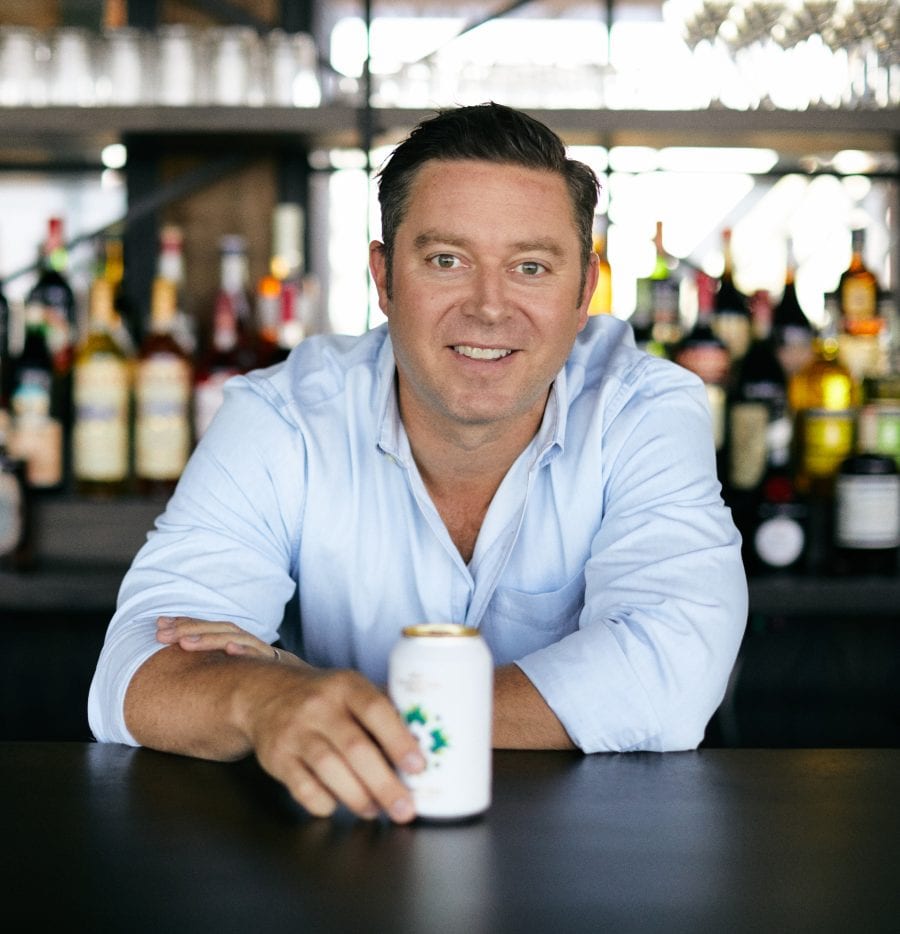
Roy Milner is the co-founder of Blackberry Farm Brewery, a Maryville, TN-based operation that started out brewing farmhouse ales in a literal farmhouse, a repurposed barn building on the estate of the beloved Blackberry Farm resort in Walland, TN. From that small set-up that was basically a glorified homebrewing system, Milner and his team have expanded their facility into a much larger production operation just down the road from Blackberry Farm. The brewery had recently expanded their taproom to welcome more guests into their facility when the pandemic hit and shut down all outside contact. Milner maintains his optimism in the face of these difficulties, saying “It’s been a crazy time for everyone, and attitudes here seem to be as positive as possible during these challenging times. We just got our taproom open again last week, so that’s been helpful.”
At many small craft breweries, throughput in their taprooms is a major portion of their revenue, but Blackberry Farm’s model relied on in-house purchases for only about 20% of their sales, with the remaining portions split fairly equally between on-premise purchases at restaurants and bars and off-premise retail sales. With running at much lower capacities and his own taproom business eliminated for months, Milner found himself in a predicament.
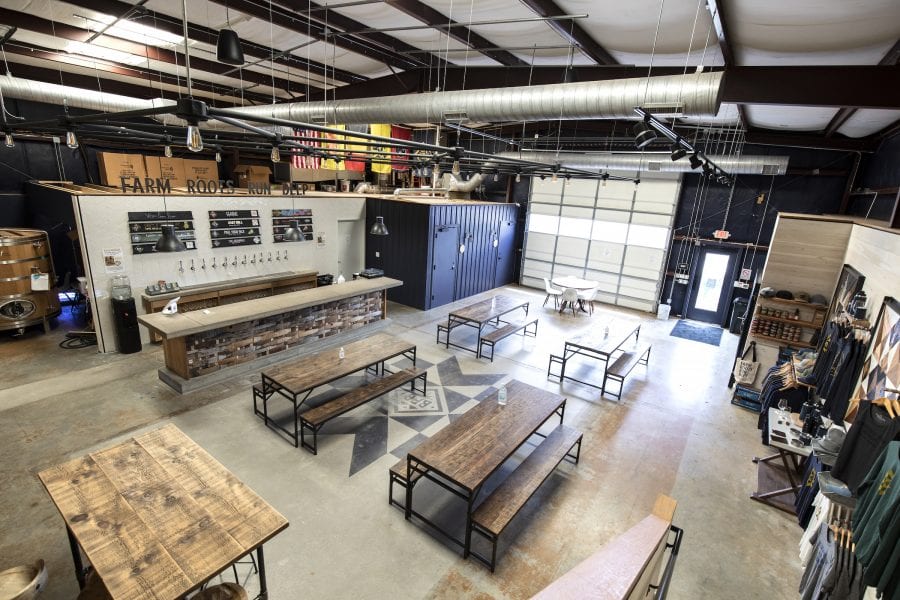
He explains, “We’re a family-owned independent brewery. We’re as local as we can possibly be, but we also play in a global sandbox. We had collaborations, and friendships and events that we were doing before the pandemic all over the place. We had just gotten back from England in February. We made the elective decision to sell most of our beer in Tennessee. We could sell in lots of other states, but we make sure our Tennessee distributors get what they need first. Most of our beer is sold out in the trade to our friends with independent restaurants, and we don’t do anything with chain programs.”
That commitment to a small universe of independent restaurants means that Milner’s brewery is in the same boat with his customers. “Those are our friends and our customers. If they’re not open, then we’re not either. And that’s OK because we’ve always looked at community as one of the most important aspects of our brand. We’ve reached out to them to ask how we can help and what we can do. But we’ve seen about 60% of our business just go away in the meantime.”
Not that the Blackberry crew sat on their hands the whole time. Blackberry Farm has been a longtime supporter of the weekly farmer’s market in Maryville, but social distancing rules meant that the open air market couldn’t operate for much of the spring. So, Milner set up their own version of a market outside the taproom, manned by their sales and support team selling to-go food items, produce and beer from the farm. “We always want to help support local products, and it’s surprisingly been a nice little lift. We’ve gotten some people who have never come by the taproom, and it was good for us to keep our team active.” The farmstand has also been a way to keep local residents connected to Blackberry Farm’s popular bread and pastry program while the resort was closed to visitors until recently.
On the production side of the brewery, Milner shares, “We never missed a beat. We were seeing a consistent draw of our inventory to retail stores, even though draft beer sales are non-existent. We took some of the time to overhaul everything in the brewery and concentrated on maintenance. You never seem to have enough time for that when you’re busy, and we’re confident that will pay off in the future. We’ve also got a little bit longer of a brewing process, about a 30 day cycle, so we’ve basically been able to brew on-demand for our needs to keep the product fresh.” They also released a new IPA, kind of a blend of West Coast and East Coast styles, despite the fact that they have been unable to get out into the market for a formal product introduction. “There’s still an appetite for new beers,” explains Milner. “We had a full team meeting, and we didn’t put aggressive forecasts out there for the rest of the year. We want to be responsible and good partners to our distributors. The last thing we need is to put fresh beer in their warehouses, and it just sits there and doesn’t make it out into the trade. We’ve projected that our off-premise sales will be about where we thought it would, consistent with last year. In the on-premise, it’s just crazy to try to put a number on it.”
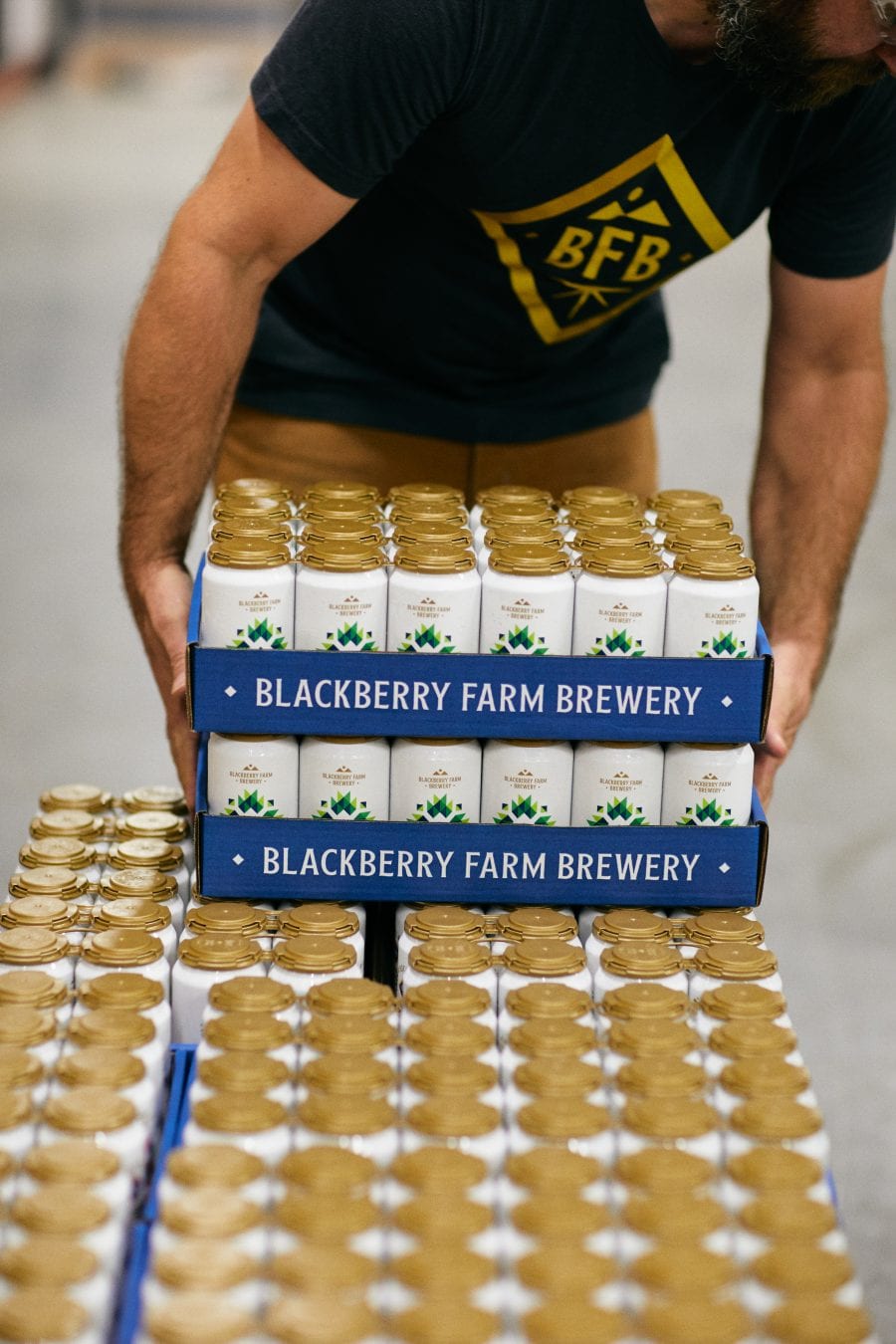
Milner continues talking about their restaurant business, “We’re just going to continue to watch it evolve and see how people feel. If they’re comfortable, we’ll just make more beer. If we get to 50% of the forecast that we had for on-premise, I’d consider that a win, but I’m not even sure if that’s realistic because events aren’t really happening. Even when independent accounts open up again, I think the 3-4 hour dinners where people come in and have a beer, sit and have a couple of bottles of wine — I just don’t know if that’s going to be the way people feel comfortable in those settings going forward.”
He recognizes that his business is fortunate to be associated with such a respected organization as Blackberry Farm: “We’re backed by patient capital with a long view. We really feel for a lot of our brewery friends out there that have no ways to access new routes to market. The beer community is something that we’re really proud to be a part of, but we’ve decided it’s not a time for us to press the sales button. We’re asking our accounts how they want to be communicated with and don’t want to force the agenda. We’re just going to try to be good listeners and patient and adapting. Craft producers need more support than ever, and I just hope that people continue to appreciate well-made, locally-made products.”
Resetting the Table: How Beverage Professionals Are Weathering the Storm
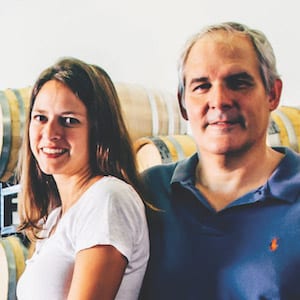
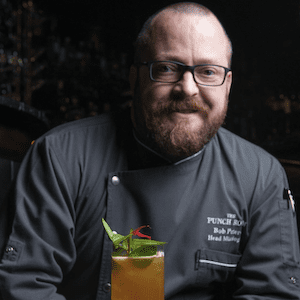
The Distillers: Ann Marshall & Scott Blackwell The Bartender: Bob Peters
share
trending content
-
The Wandering Chef
by Emily Havener -
Sip, Savor, & Shop in Downtown Clayton, North Carolina
-
7 Noteworthy Mississippi Restaurants | Listen
by TLP Editors -
See What’s Brewing in Myrtle Beach
-
Exploring Chapel Hill’s Culinary Treasures
by TLP's Partners
More From In the Field
-
The Wandering Chef
-
The Edge of Tradition | Listen
-
Staff Meal
-
From Pop-Up To Brick-and-Mortar | Listen
-
The Return of the Lynnhaven Oyster | Listen
